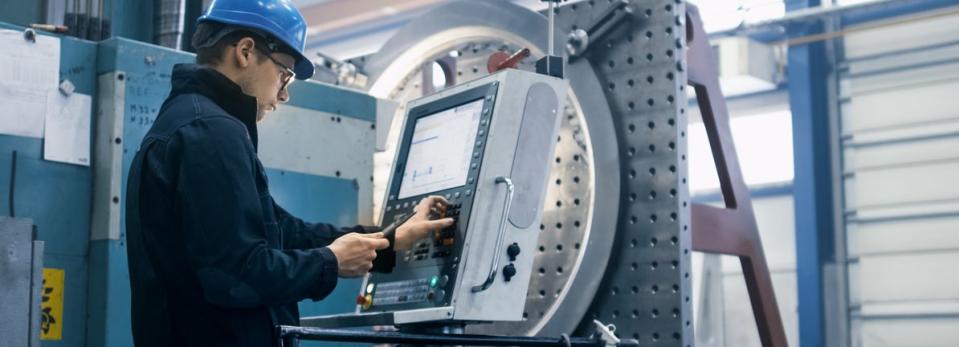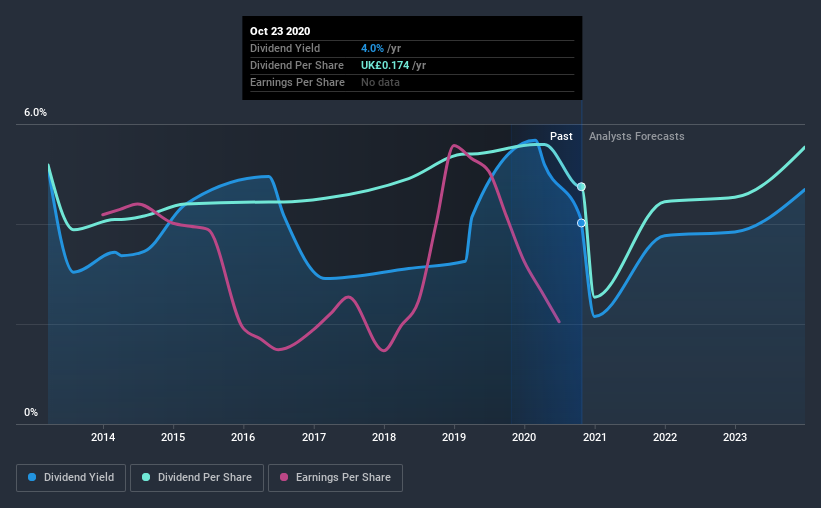It Might Not Be A Great Idea To Buy Vesuvius plc (LON:VSVS) For Its Next Dividend

Some investors rely on dividends for growing their wealth, and if you're one of those dividend sleuths, you might be intrigued to know that Vesuvius plc (LON:VSVS) is about to go ex-dividend in just four days. Ex-dividend means that investors that purchase the stock on or after the 29th of October will not receive this dividend, which will be paid on the 4th of December.
Vesuvius's next dividend payment will be UK£0.031 per share. Last year, in total, the company distributed UK£0.20 to shareholders. Calculating the last year's worth of payments shows that Vesuvius has a trailing yield of 4.0% on the current share price of £4.328. If you buy this business for its dividend, you should have an idea of whether Vesuvius's dividend is reliable and sustainable. So we need to investigate whether Vesuvius can afford its dividend, and if the dividend could grow.
View our latest analysis for Vesuvius
Dividends are usually paid out of company profits, so if a company pays out more than it earned then its dividend is usually at greater risk of being cut. Last year Vesuvius paid out 93% of its profits as dividends to shareholders, suggesting the dividend is not well covered by earnings. Yet cash flows are even more important than profits for assessing a dividend, so we need to see if the company generated enough cash to pay its distribution. What's good is that dividends were well covered by free cash flow, with the company paying out 14% of its cash flow last year.
It's good to see that while Vesuvius's dividends were not well covered by profits, at least they are affordable from a cash perspective. Still, if the company continues paying out such a high percentage of its profits, the dividend could be at risk if business turns sour.
Click here to see the company's payout ratio, plus analyst estimates of its future dividends.
Have Earnings And Dividends Been Growing?
When earnings decline, dividend companies become much harder to analyse and own safely. If earnings decline and the company is forced to cut its dividend, investors could watch the value of their investment go up in smoke. Readers will understand then, why we're concerned to see Vesuvius's earnings per share have dropped 13% a year over the past five years. When earnings per share fall, the maximum amount of dividends that can be paid also falls.
The main way most investors will assess a company's dividend prospects is by checking the historical rate of dividend growth. Vesuvius's dividend payments per share have declined at 1.1% per year on average over the past eight years, which is uninspiring.
Final Takeaway
Should investors buy Vesuvius for the upcoming dividend? It's never great to see earnings per share declining, especially when a company is paying out 93% of its profit as dividends, which we feel is uncomfortably high. However, the cash payout ratio was much lower - good news from a dividend perspective - which makes us wonder why there is such a mis-match between income and cashflow. With the way things are shaping up from a dividend perspective, we'd be inclined to steer clear of Vesuvius.
So if you're still interested in Vesuvius despite it's poor dividend qualities, you should be well informed on some of the risks facing this stock. In terms of investment risks, we've identified 4 warning signs with Vesuvius and understanding them should be part of your investment process.
We wouldn't recommend just buying the first dividend stock you see, though. Here's a list of interesting dividend stocks with a greater than 2% yield and an upcoming dividend.
This article by Simply Wall St is general in nature. It does not constitute a recommendation to buy or sell any stock, and does not take account of your objectives, or your financial situation. We aim to bring you long-term focused analysis driven by fundamental data. Note that our analysis may not factor in the latest price-sensitive company announcements or qualitative material. Simply Wall St has no position in any stocks mentioned.
Have feedback on this article? Concerned about the content? Get in touch with us directly. Alternatively, email editorial-team@simplywallst.com.

 Yahoo Finance
Yahoo Finance 
